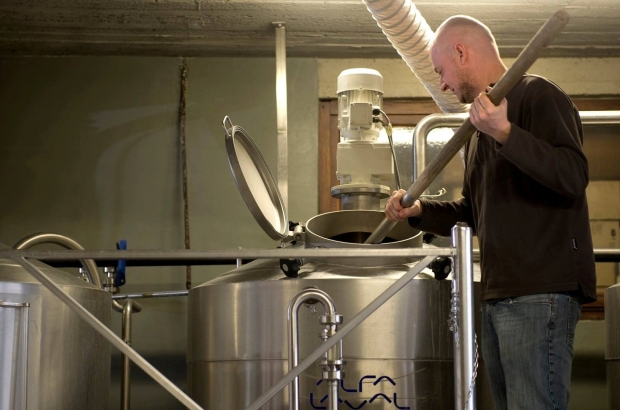- Daily & Weekly newsletters
- Buy & download The Bulletin
- Comment on our articles
Belgian brewery numbers fall for first time in 20 years
The number of breweries in Belgium has fallen for the first time in two decades, new figures reveal.
The Belgian Brewers Federation noted 417 firms in business at the end of 2023, 13 less than in 2022, with smaller firms most affected.
This is partly to be expected given the steep rise in energy and raw material prices experienced last year, as well as the hike in bottle costs, the federation said.
Some 20 years ago, there were only 100 or so breweries in Belgium, until the rise of microbreweries changed the landscape.
The impact of the Covid-19 pandemic and the war in Ukraine, which pushed up cereal costs, halted the increase, but shortly afterwards small producers began to start up again.
Cedric Jamar, a beer sommelier for training and consulting company Agalmalt, said that the sector is not a victim of its success.
“There are not too many microbreweries in Belgium. But the area is complicated for several reasons,” he said, citing competition with large producers and the impact of raw material and energy costs as key factors.
The approach of large and microbrewers is different too, added Jamar. “You have defenders of cultural and taste diversity on the one hand and producers of money on the other,” he said.
Rémi Paquin, coordinator of beer cooperative CoHop, which brings together four small beer companies, said the growth of microbreweries is because "there is a demand for them, a change in consumption patterns of people who want local and artisanal products".
But he added: "There have been perhaps too many all at once. And industrial beer companies still take a lot of space. There is not enough room yet for everyone perhaps, but we can hope that this will come."
For Krishan Maudgal, Belgian Brewers Federation director, another reason is simply that Belgian beer consumption has decreased over the years. "In a way, the sector is a little saturated, which is clearly not easy for small structures," he said.
One way to help the sector is by forming groups to pursue the search of special flavours and artisanal methods. “We created an innovative and solidaire business model,” said CoHop’s Requin.
“Breweries come to use the material in turn and pay a sort of rent to the cooperative. Therefore the more they come and brew, the more they pay and those who produce less and do not do as well, will pay less. This allows for balance and solidarity.”
One CoHop member, Thomas Detourbe, the founder of Witloof brewery, said that without the cooperative, he would no longer be in business. “I would not have dared to launch a microbrewery on my own. And I would not have survived,” he said.
“Every day is not easy. But we regroup, we discuss problems together and that helps.”
Even brewers who decided to go it alone and finally failed said the experience was positive.
For example, independent brewer Sébastien launched a business in 2022 to create some 1,500 litres of ‘Vive’, sold mainly in theatres. But he became disenchanted with the amount of tasks to manage and the difficulty to compete in such a saturated market.
“I realised very quickly that I would never be able to sell enough beer to reinvest and relaunch production,” he told RTBF.
Normally breweries work with wholesalers who will sell your product, he said. But to be accepted you would have to make a name for yourself. “This meant a big investment in time and a significant amount of canvassing,” he added.
Ultimately, Sébastien said that if he had sold bigger beer volumes he would have continued, but the investment in time and money would not have made this worthwhile. But he still enjoyed the venture, showing how popular breweries and beer still are in Belgium, despite the challenges.

















